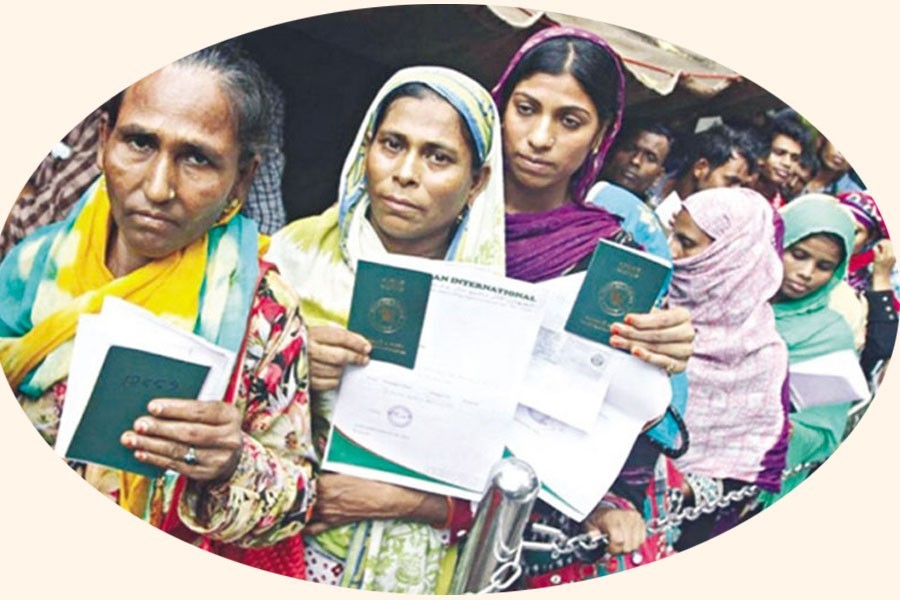Bangladeshi women domestic workers receive the lowest wage in Oman, according to a study.
It has showed that Filipino women call the highest rate of pay as elsewhere in the gulf region.
The minimum monthly salary is fixed at 160 Omani Rial (OMR) compared with 120 OMR for Indian and Sri Lankan and 90 OMR for Bangladeshi maids.
The findings of the study titled 'The Invisible Workers: Bangladeshi Women in Oman' were unveiled at a webinar on Monday.
The research was conducted during the period between February and March 2020 under 'Work in Freedom', an ILO-DFID project.
Thirty-five Bangladeshi women migrant workers were interviewed. They were found in 11 types of occupations, including 13 live-in and 11 live-out domestic workers, two cleaners and one medical doctor.
Like most countries in the middle-east, Oman has the particularity of fixing salaries according to the nationality of its foreign workers and not according to individual qualifications.
Nationalities are thus typified and workers' earnings bracketed. Some governments have been more efficient than others in promoting their nationals and demanding corresponding salaries such as the Philippines, but Bangladesh is known to have often lagged behind in this respect.
Two years ago, the Bangladesh and Omani governments concluded an agreement, fixing the minimum monthly salary for Bangladeshi workers at 90 OMR, the same level adopted for women and men.
Referring to the Bangladesh ambassador in Oman, the study said the Omani government had pressed for a lower rate, but Bangladesh fought for this level.
Several maids also did not get minimum salary. Two women reported being paid 70 OMR and quite a few received 80 and 85 OMR.
Following the bilateral agreement signed in 2015 between Saudi Arabia and Bangladesh, which fixed domestic workers' monthly salary at 1,000 Rial, income generally increased for women domestic workers throughout the Middle East.
A wide application of the new regulations, noticeable from 2017, attracted women workers to Saudi Arabia and exerted pressure on Omani employers to augment salaries.
The study also showed that the agency fee for a Filipino maid ranged from 1,335 to 1,550 OMR compared with 1,200 OMR for an Indian or a Sri Lankan and 800 OMR for a Bangladeshi maid. These fees are exclusive of aqama (work permit) costing the employer 200 OMR.
Differences in costs between Sri Lankan and Bangladeshi maids were explained by the fact that, for the former, the employer paid a health insurance made compulsory by the Sri Lankan government whereas, for the employers of Bangladeshi maids, health insurance was left to the discretion of the employer, meaning they were not insured.
"We have seen Bangladeshi maids paying for health care from their own pocket unless fortunate enough to have kind and generous employers," a situation confirmed by the Bangladeshi doctors working in Salalah.
Women presently make up about 10 per cent of the Bangladeshi migrant population in Oman.
Bangladesh embassy officials in Muscat have estimated the number of Bangladeshis presently living in Oman at 750,000 including undocumented workers.
Thérèse Blanchet, social anthropologist and the researcher of the study, presented the key findings at the programme where Dr Atiur Rahman, former governor of Bangladesh Bank, and academicians were also present.


